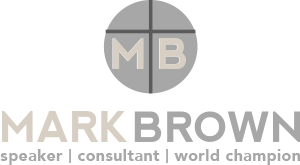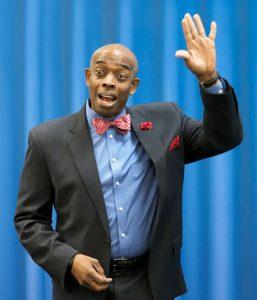| Recently I read a book in which the author quoted a poem, and when I heard it I thought to myself, “Hmmm…that doesn’t sound quite right.” I decided to do some research. It turned out that the poem is called “An Autobiography in FIVE Short Chapters” by Portia Nelson. (My fellow Certified Speaking Professional and World Champion of Public Speaking Ed Tate often uses that poem in his presentations.) I noticed two things: The author didn’t attribute the work to Nelson, and he MIS-QUOTED her. The fact that this was a PUBLISHED work alarmed me, so I took a bold step, and decided to track him down.
Within a short time, I got his e-mail address, and sent him a note, alerting him to the fact that he made an error. Two days later, to my pleasant surprise, he responded very graciously, thanking me for pointing out his mistake. He said that he didn’t realize his mistake, and he couldn’t recall exactly where he had originally heard the poem. It was the perfect fit for his book so he used it, and self-published his work. Here’s the problem: he was a published author who had used material that he hadn’t verified, and he hadn’t given credit to the original author of the poem. He had not done his DUE DILIGENCE. Sadly, this phenomenon is quite common…too common. To be honest, I found myself guilty of this several years ago when I attributed the line, “Life is what happens to you when you’re busy making other plans” to the singer John Lennon. I later learned that the originator was Allen Saunders, whose published quote first appeared in The Reader’s Digest back in 1957. Since then, I take extra care in verifying information before I use it. Some may ask, “Why make such a big issue of a few words, Mark?” It’s because using inaccuracies will hurt your credibility. What we say from the platform speaks about who we are. If our accuracy can be called into question, then our credibility can be called into question. Worse, our integrity can be called into question as well. Every time that we stand on the platform, we have the responsibility to share our messages with honesty, integrity, and accuracy. With 21st-century technology, we have instant fingertip access to all the information that we need. We have tablets, smartphones, laptops, desktop devices, Siri, Google, Alexa and on and on and on. It takes a small investment of time to verify the quotes and stories that we share. Quotes like “Never, never never give up”, attributed to Sir Winston Churchill. Here’s the problem. That’s NOT what he said. It’s inaccurate. His actual words were: “Never give in. Never give in. Never, never, never—in nothing, great or small, large or petty—never give in, except to convictions of honour and good sense.” This can be easily verified by a simple YouTube search, which will yield audio recordings of Sir Winston’s remarks. Then there are stories like that of the nine runners at the 1976 Special Olympics in Washington; a heart-warming, tear-jerker of a tale, in which one runner falls and begins to cry. In the story, ALL THE OTHER RUNNERS stop, turn back to help, and they all cross the finish line together. One girl even kisses the fallen runner and reassures him with “This will make it better.” Videos have been produced re-creating this most touching moment, and many a warm-hearted viewer has reached for the nearest box of facial tissues to absorb their tears except…it did not happen. Several years ago, I called the Special Olympics office to confirm the details of this event, which had gained international fame. I spoke with two different staffers on two separate occasions, and neither of them could confirm that the events took place as described in the popular version of the story. Wait a second! It’s a story I had heard many times, in different places, from several professional speakers, for decades, and the supposed source couldn’t verify the accuracy of this emotional story? WHAT? It was eye-opening. I realized how easily a misquotation, or an inaccurate but oft-told tale can become accepted by virtue of constant repetition. Now, every time I intend to use a quotation or a story, I do extra research, and extra due diligence. I encourage you to do the same. Remember: your credibility and your integrity are at stake. Our audiences deserve our best. Our audiences deserve truth. Our audiences deserve accuracy. The next time you choose to use a quotation, or tell someone’s short story or anecdote, do your due diligence. Invest the time. Do the research. Verify your accuracy. Your audiences are depending on, and trusting in you. Do your due diligence; your credibility and integrity will never be called into question. You can quote me.
|



